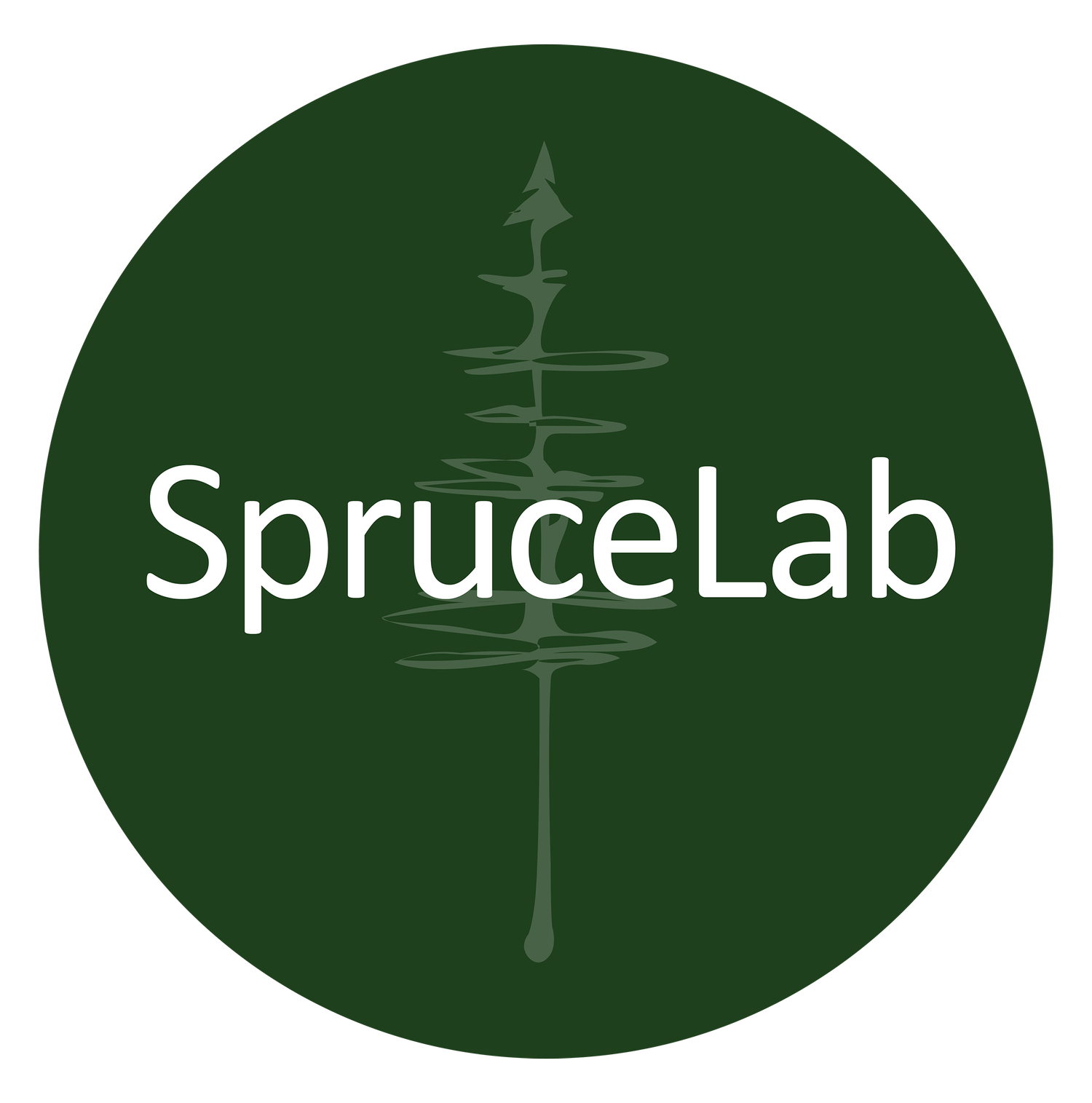Dbaajmowin
Dbaajmowin (story/narrative, Ojibwe Eastern and Odawa dialect) is an Indigenous-led artist collective that evolved through a sharing of conversations about creating places for people, and the lack of Indigenous designs and stories in this work. Through co-design, Dbaajmowin seeks to understand Indigenous needs in public realm and interior spaces, and to respond to these learnings with beautiful and innovative design solutions.
The collective includes Anishinaabeg artist Amber Smith Quail, Algonquin artist Karl Chevrier, Haudenosaunee furniture designer Ashley MacDonald, Québecois sculptor Jacques Baril, and SpruceLab designer Sheila Boudreau, with support from the SpruceLab team. Dbaajmowin has expertise designing public art installations and site furnishings, including the development of supporting materials to share their stories in meaningful and culturally appropriate ways. Training and business opportunities for Indigenous Peoples and businesses are sought throughout the supply chain for this work. More information about the members of the collective and examples of their art and design work are shared below.
See Dbaajmowin’s first public art sculpture, Nbi Ayaa Mshkiki (“Water is Medicine” - Anishinaabemowin), unveiled Nov. 3, 2023, at Rotary Frenchman’s Bay Park West, Pickering, ON, here.
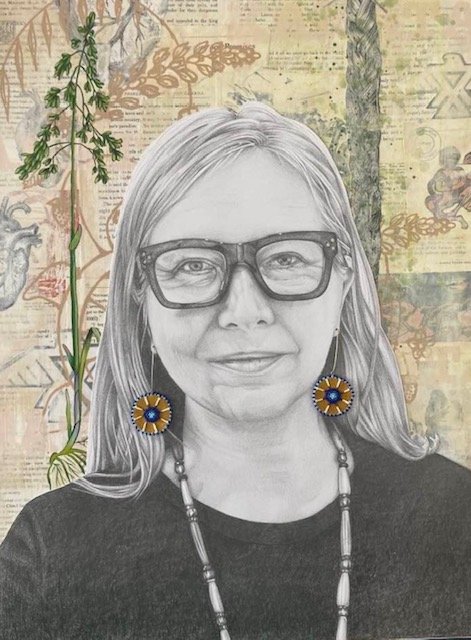
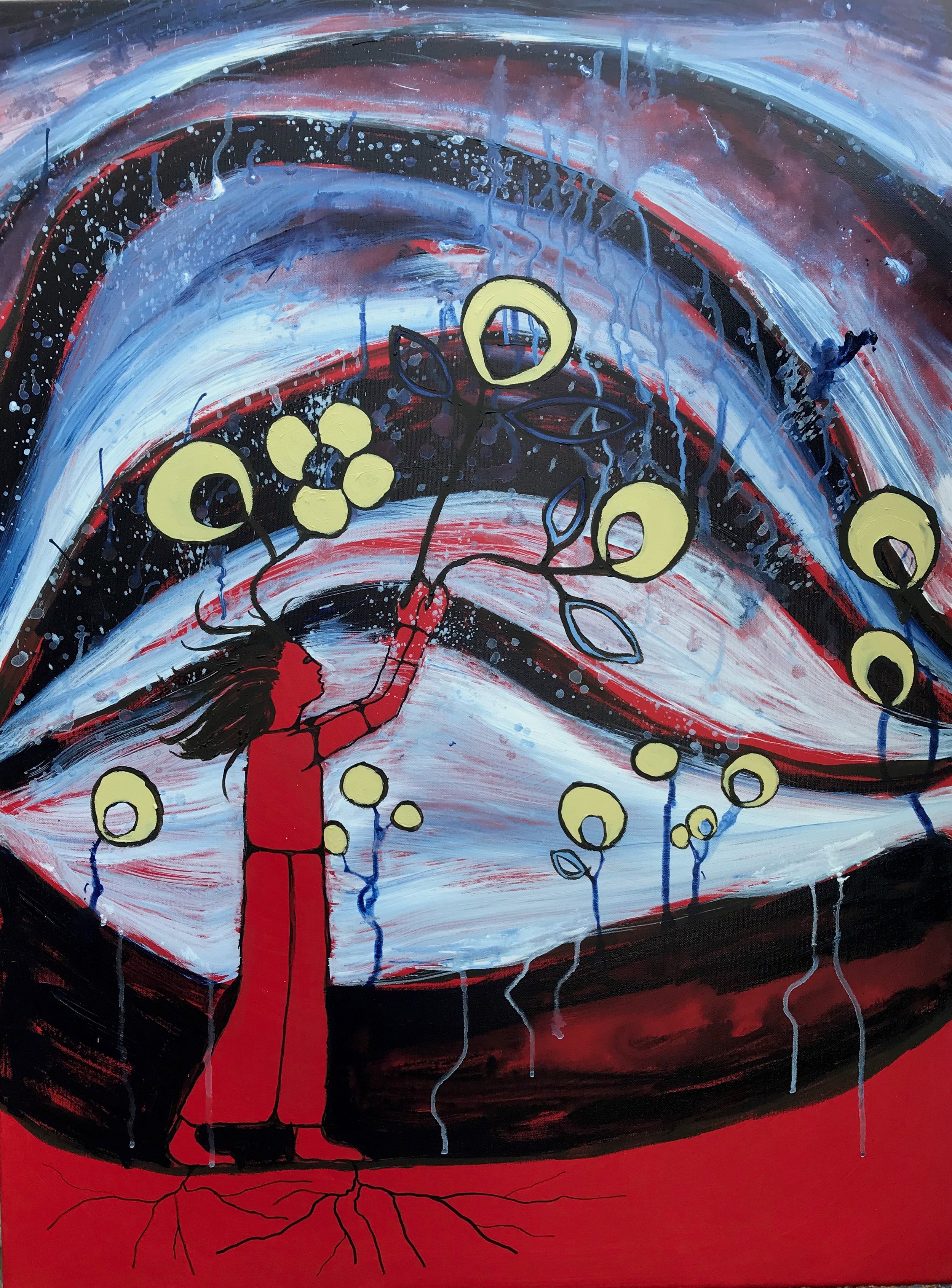

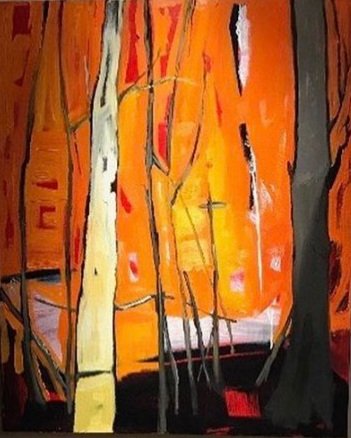


Amber Smith Quail
Amber Smith-Quail is an artist, educator, mother, wife and auntie who divides her time between South Algonquin and Tkaronto. She is a member of Alderville First Nation and has over 14 years of experience working with Indigenous and non-Indigenous children and youth in Toronto’s city core. Her mission has been to use the power of art, language and culture as an instrument of healing and believes that art is medicine. She holds a Bachelor’s degree in English and Theatre from the University of Guelph as well as a Bachelor of Education and a Master of Education with a focus on Urban Indigenous Education, both from York University.
Images courtesy of Amber Smith Quail
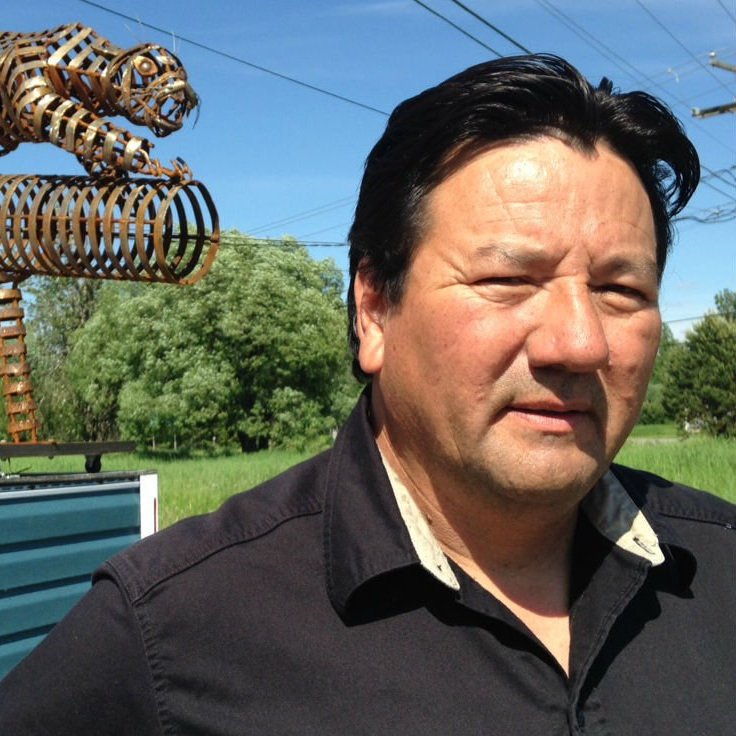



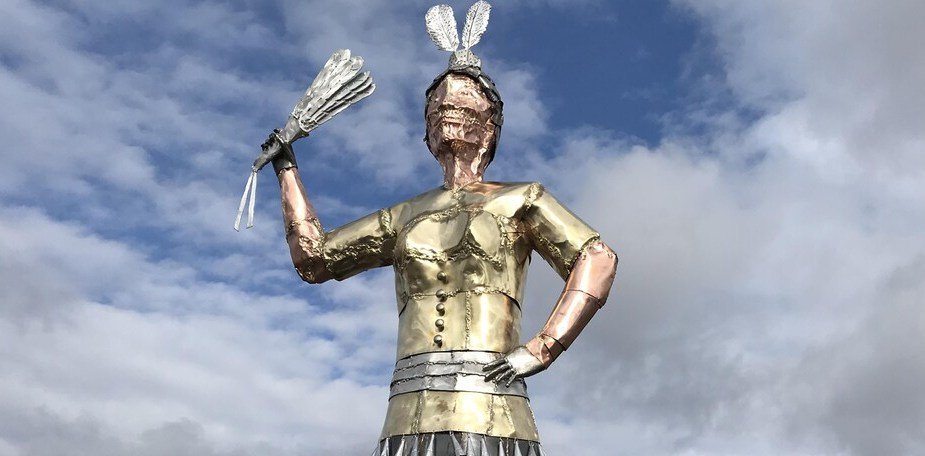

Karl Chevrier
Karl Chevrier, a talented, accomplished contemporary artist and traditional craftsman from the Anishinaabe community of Timiskaming First Nation, compares his practice to birch bark canoe making and “everything that goes with it”. His works of art blend tradition and innovation, carry strong messages and reflect his renewed commitment to causes that are close to his heart, including identity, protection of the environment and mutual aid. Chevrier has a sensitive soul and is proud of his origins. His fondest wish is that his efforts, works and teachings serve as beacons for others who also follow a road to healing. Besides giving lectures and workshops promoting full autonomy, Chevrier opens the door of his workshop to all those seeking to learn : “I can only plant a seed; then it’s up to them to make it sprout, grow and bear fruit.
“When I come back to my own culture, I can strongly use the words of the Elders. Artists have always been like sponges: when they hear things, they absorb it. When Elders talk, they draw you into their story and, as a visual artist, you can see those words and you can just add on to that and tell their stories: how we got here and how we have survived through the dances, through the songs, through the drums and everything that connects us in that way. [Art] is a way to express who you are as a First Nation. For me, it’s a good healing tool.”
Images courtesy of Karl Chevrier
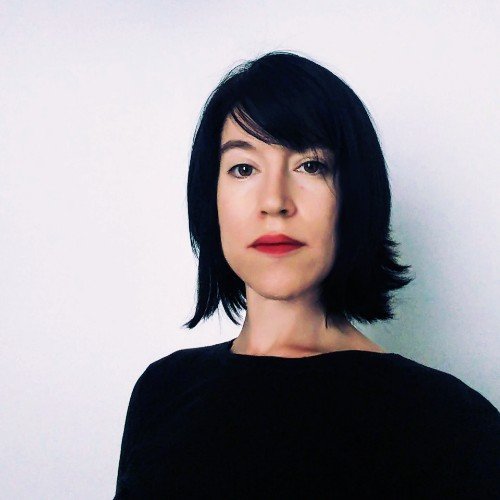
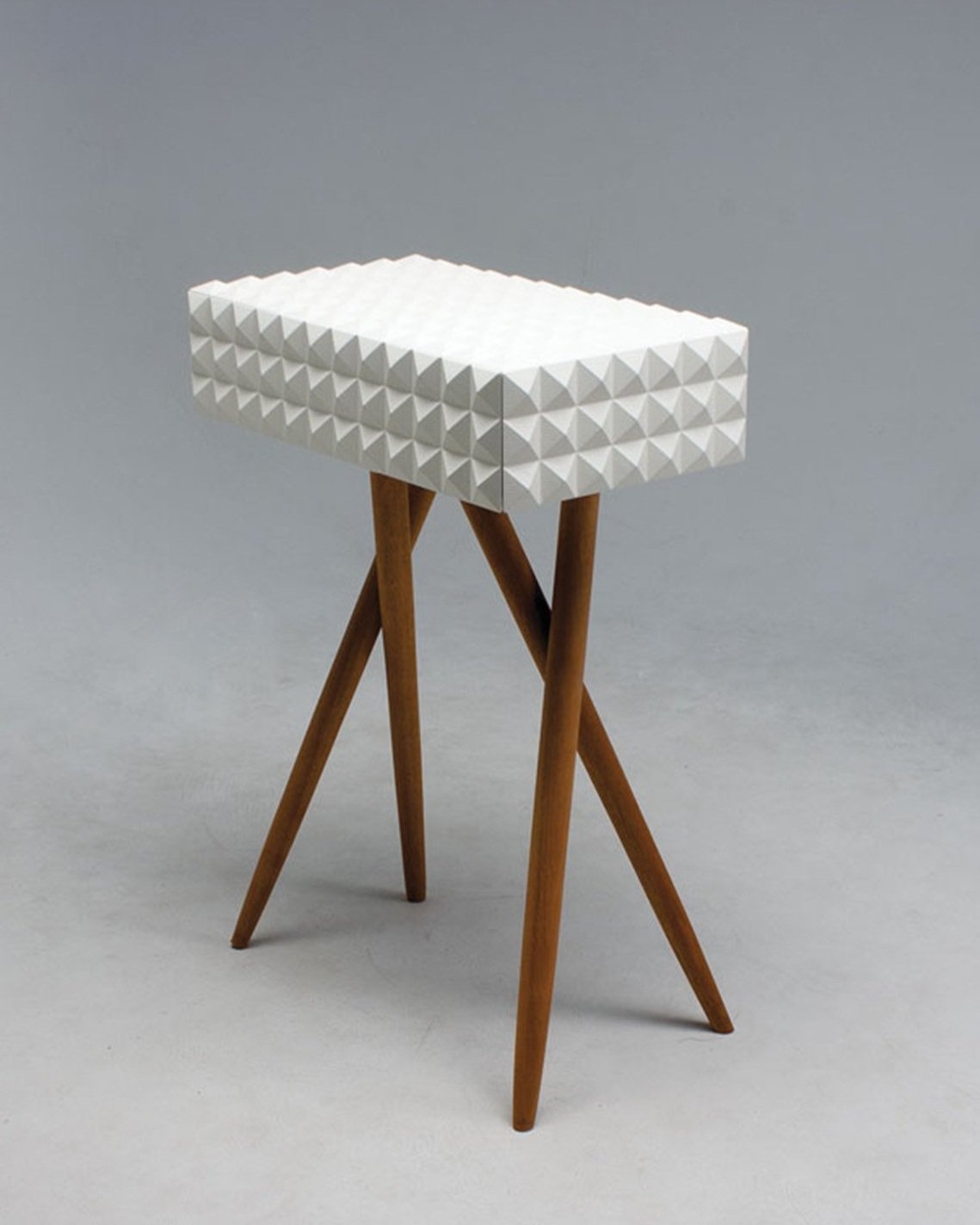
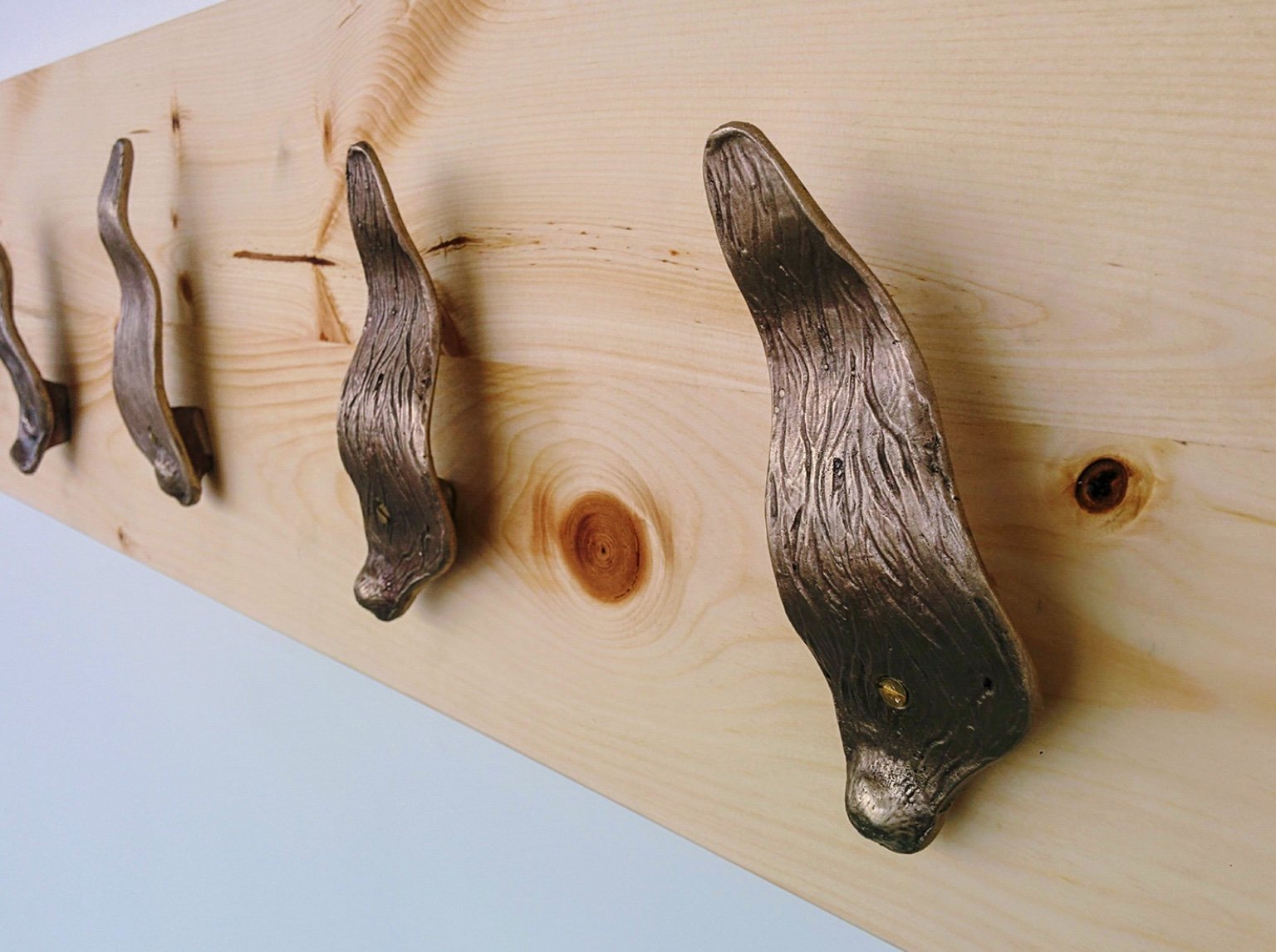
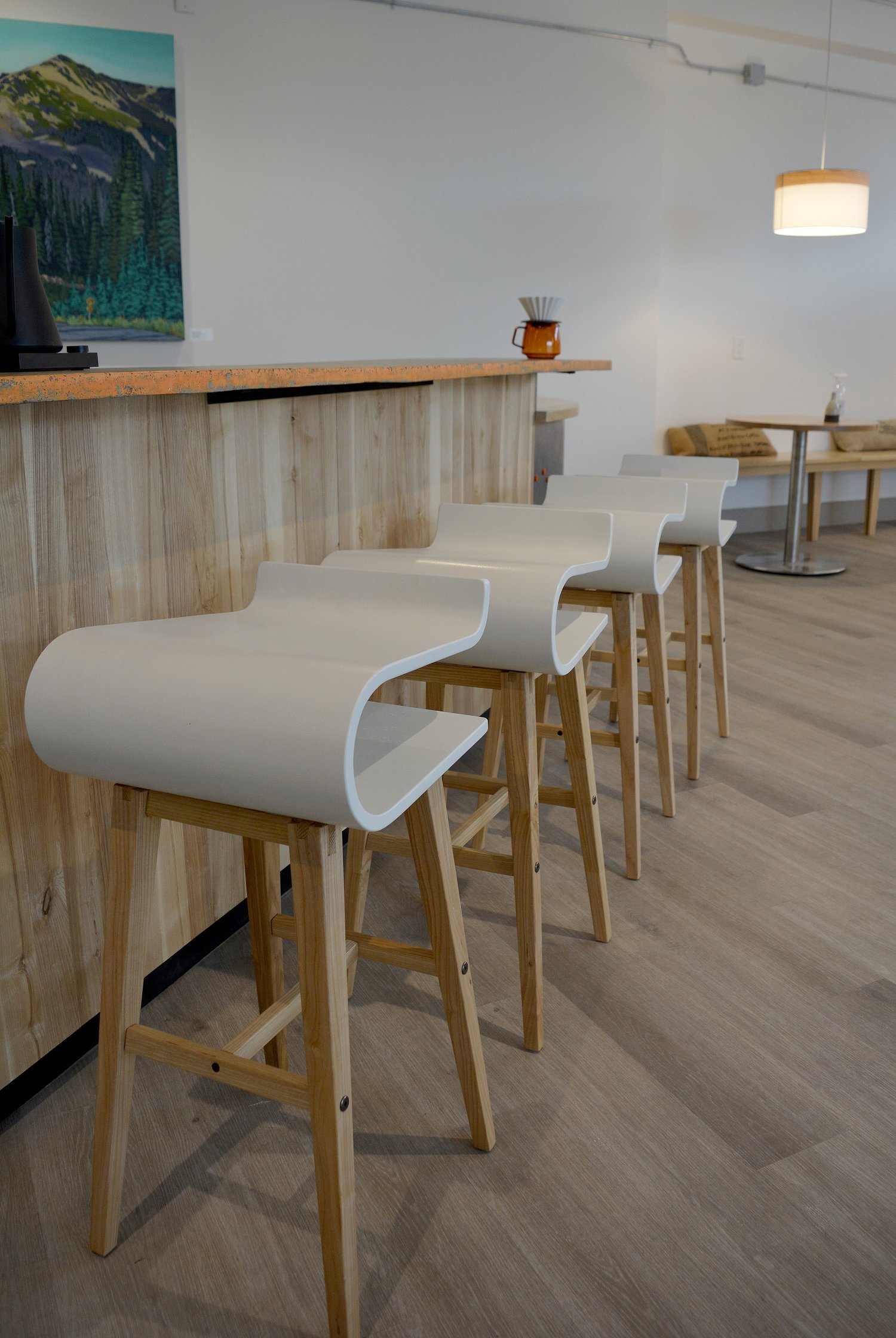
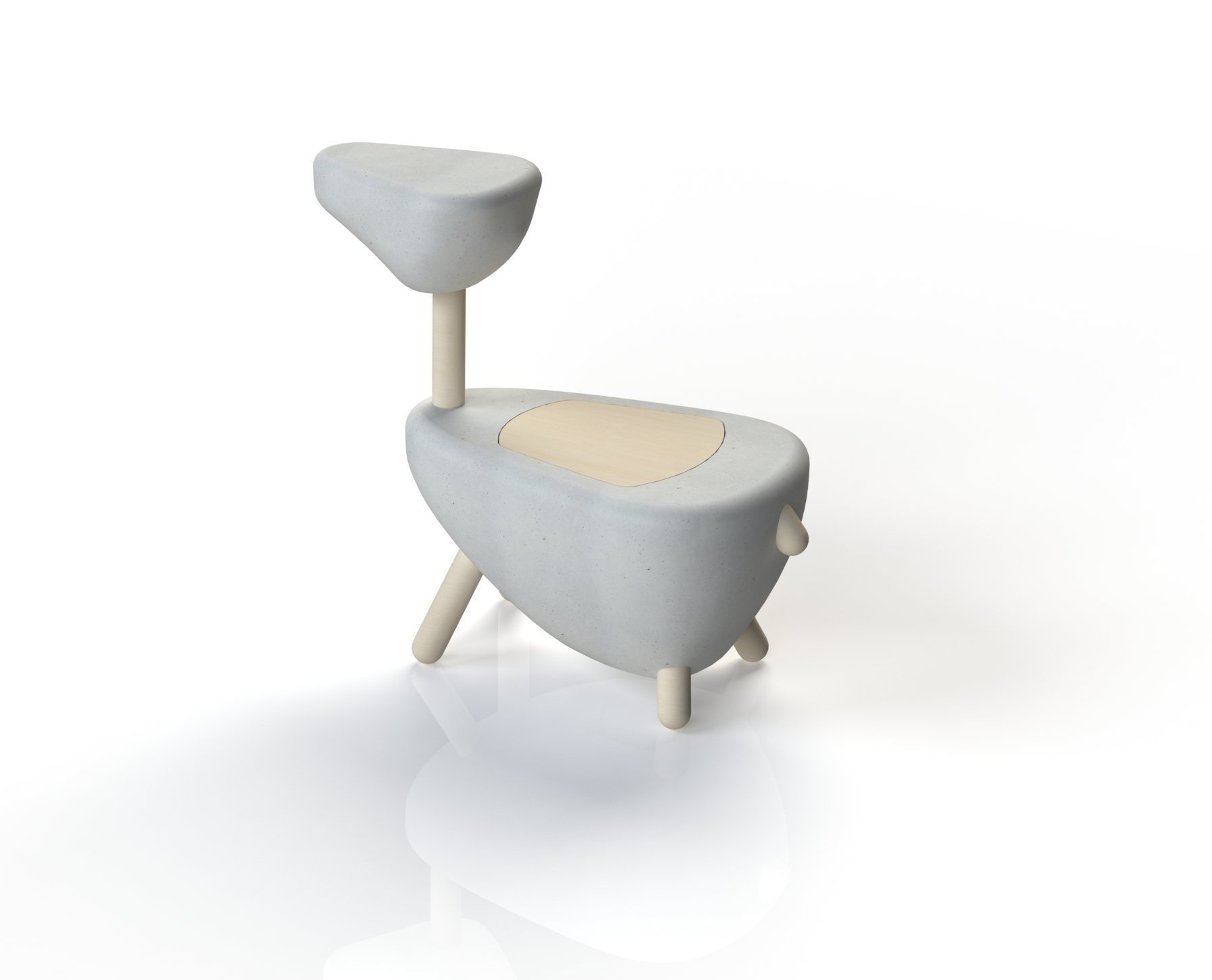
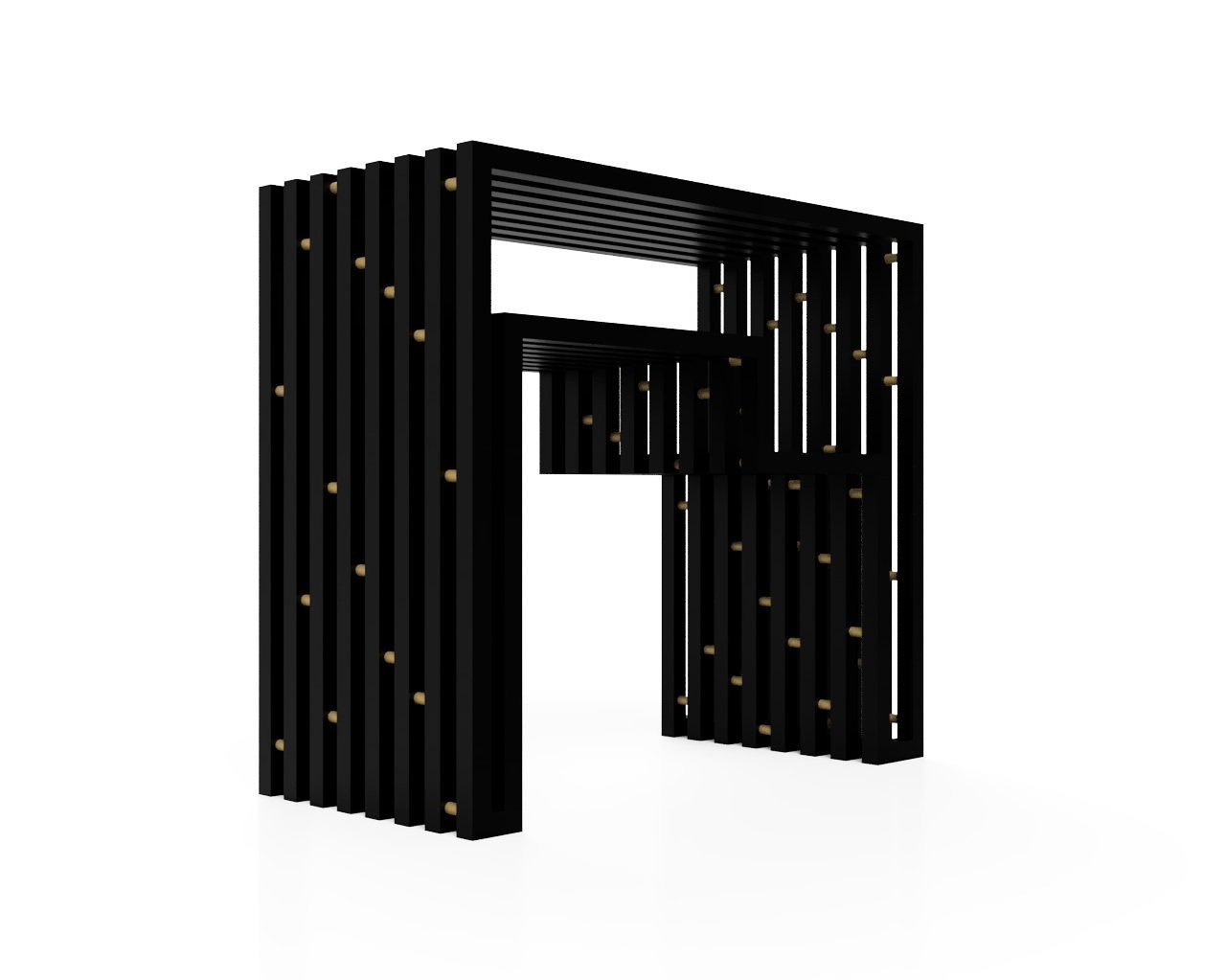
Ashley MacDonald
Ashley MacDonald is an Indigenous Sculptural Furniture Artist/Designer. Her form-forward work focuses on shape, materiality, proportion and adaptability without sacrificing functionality. Each piece celebrates daily rituals we share in work and play aiming to create an emotional bond with its keeper through storytelling and the use of natural material used in unusual ways.
Ashley grew up in a small town in southern Ontario, after travelling extensively throughout Canada and the US. Through earning her Journeyman ticket in framing in Alberta, Ashley began to realize her love of furniture, which quickly became an obsession returning to south southern Ontario to pursue an Honour’s degree Furniture Craft and Design (Sheridan) and Undergrad in Creative Problem Solving (Univ. of Buffalo). Ashley has been a mentor with Sketch Toronto introducing woodworking to marginalized teens and partnering with a small team and The Peel Region Aboriginal Network (PAN) to design and make 30 bronze castings coat hooks.
Ashley’s work celebrates her mixed urban and rural Indigenous roots, passion for adventure and willingness to explore ideas about comfort physically, mentally and emotionally. Ashley is currently preparing to launch WABUZ a modern indigenous street art inspired furniture house.
Images courtesy of Ashley MacDonald
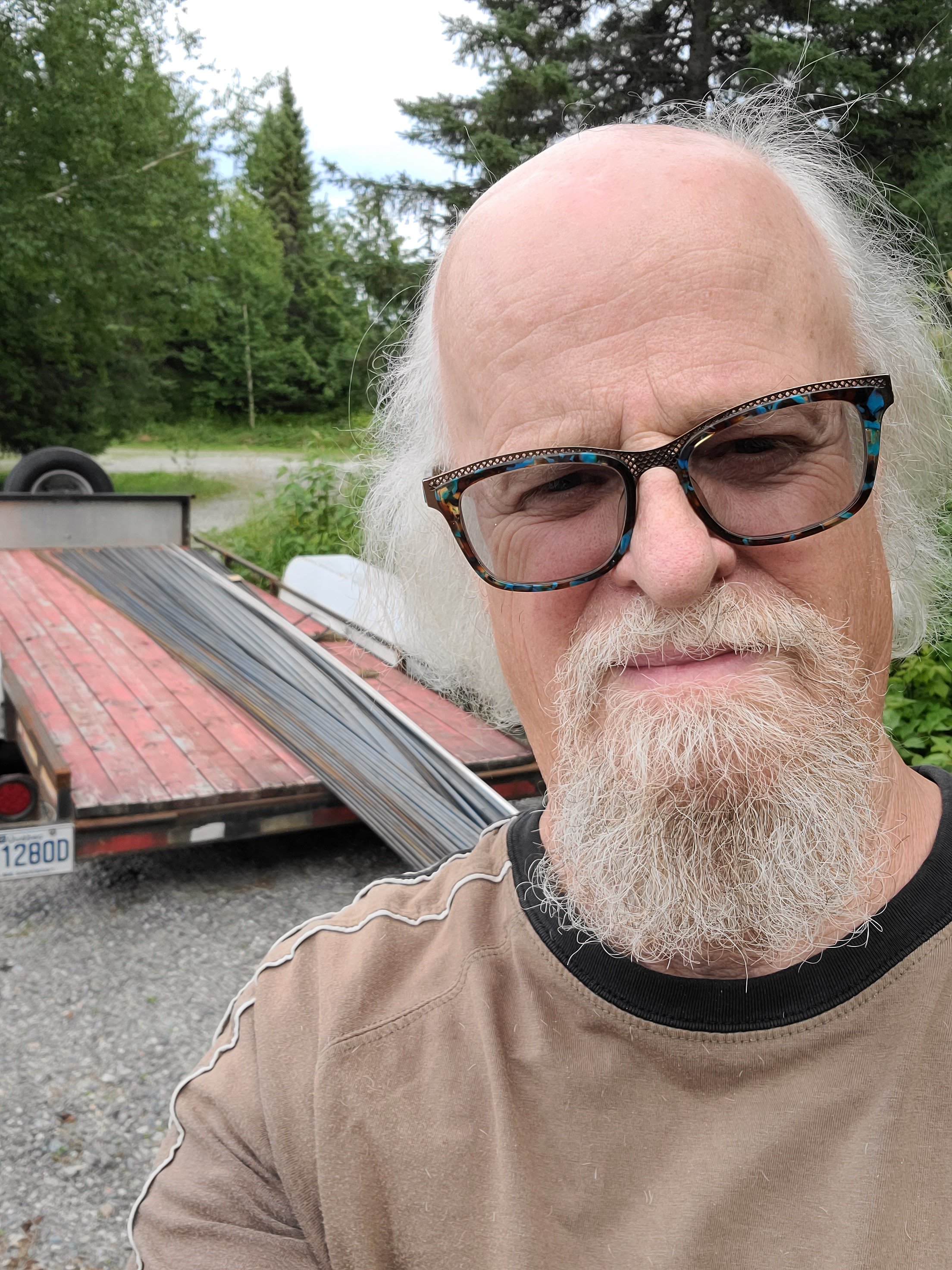

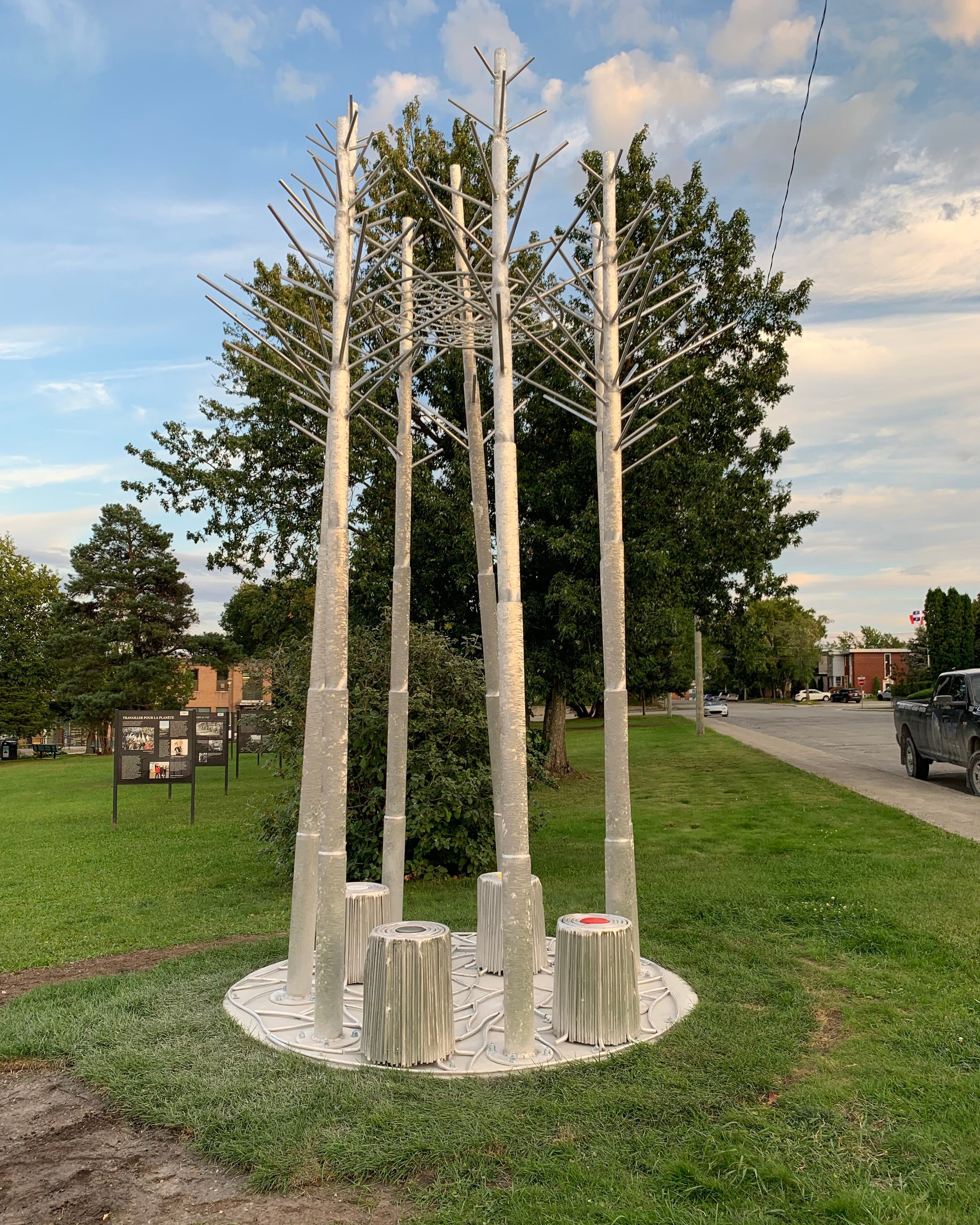

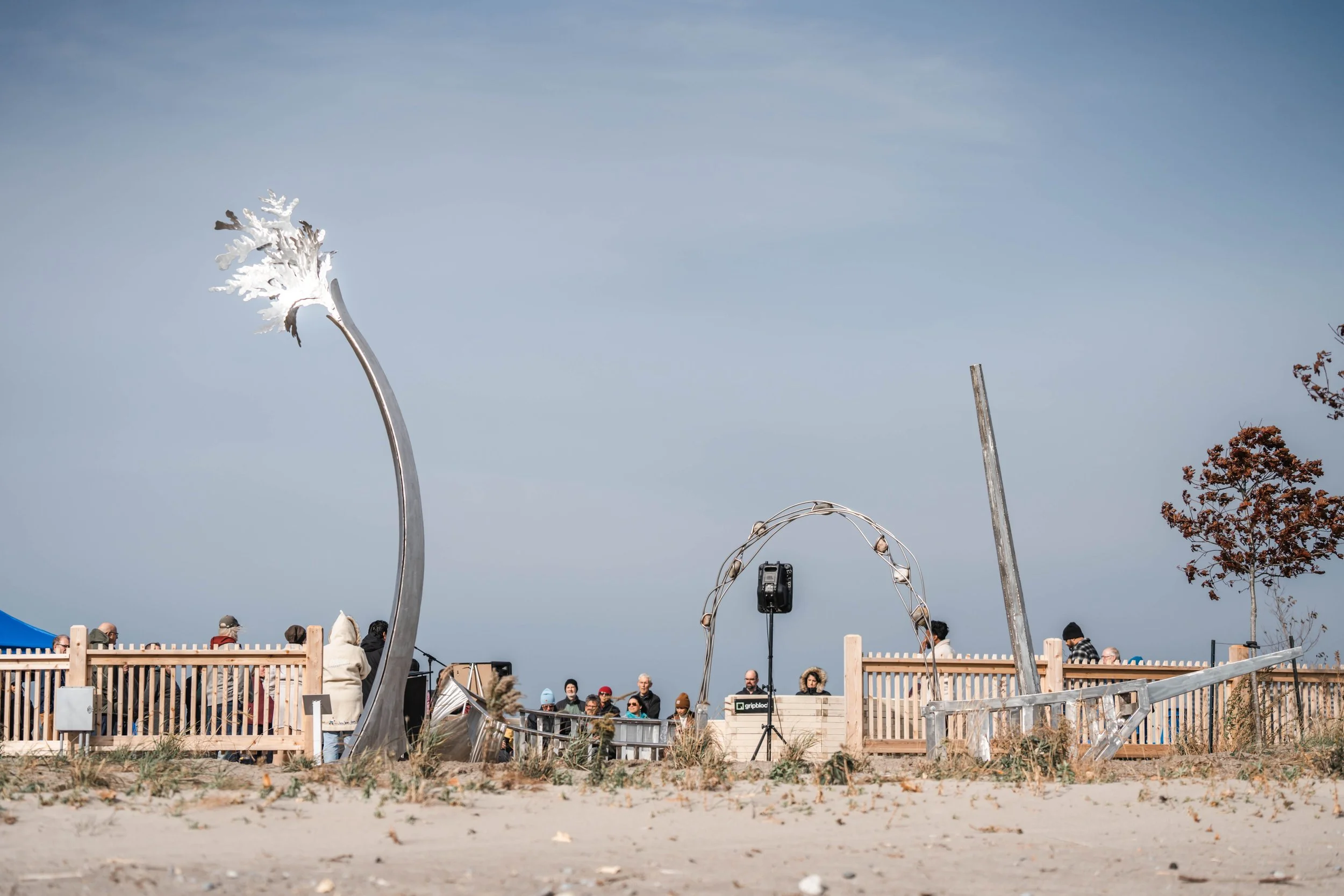
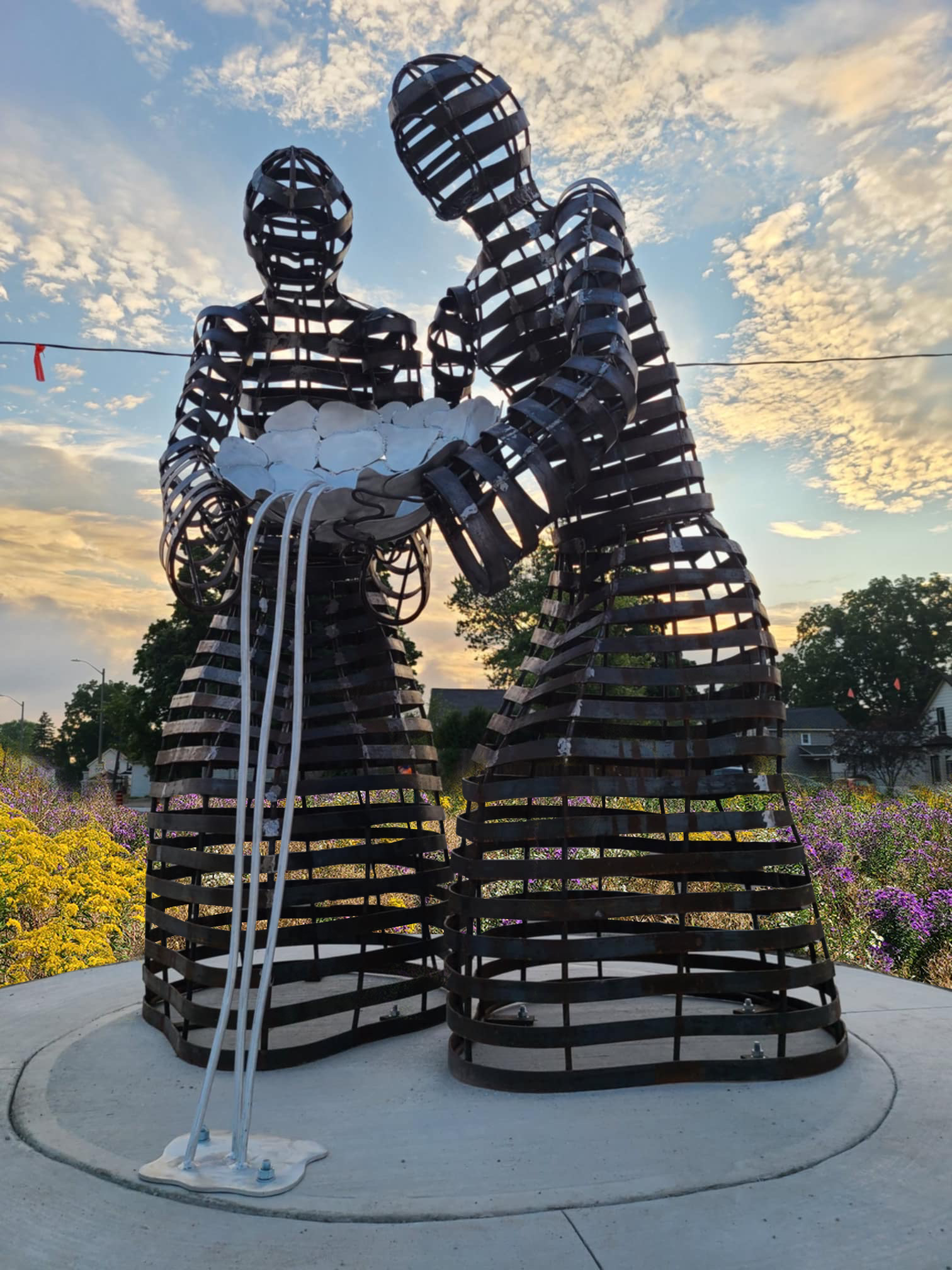
Jacques Baril
Jacques has been pursuing an artistic career for more than twenty-seven years that has taken him all over the world. A self-taught sculptor, he has participated in numerous exhibitions and symposia, both in Canada and abroad (Japan, Switzerland, Italy). He has won a large number of scholarships and awards for his work, including more than thirty snow sculpture prizes, five Prima Hydro-Québec prizes, the Conseil des arts et des lettres du Québec prize in Abitibi-Témiscamingue. He has been a member of several juries regionally, nationally and internationally, in addition to having carried out several projects integrating the arts into architecture. For the past ten years, Jacques has been offering snow sculpture workshops that have been very successful in schools, as well as at various winter celebrations with the general public.
“I am the hunter becoming a light breeze lifting each leaf. I am the hunted in brown and green earth, swallowing the hunter's footsteps. In this warlike paradox, history only exists through the symbiosis of the protagonists. Each of the hunts changes my story, recognizing it and naming it, it's my work as an artist. It is therefore the story of the paradoxes that punctuate my life that my works tell. Thus, becoming a predator of my work, I consume its essence to acquire the virtues of what I have not controlled.”
Images courtesy of Jacques Baril

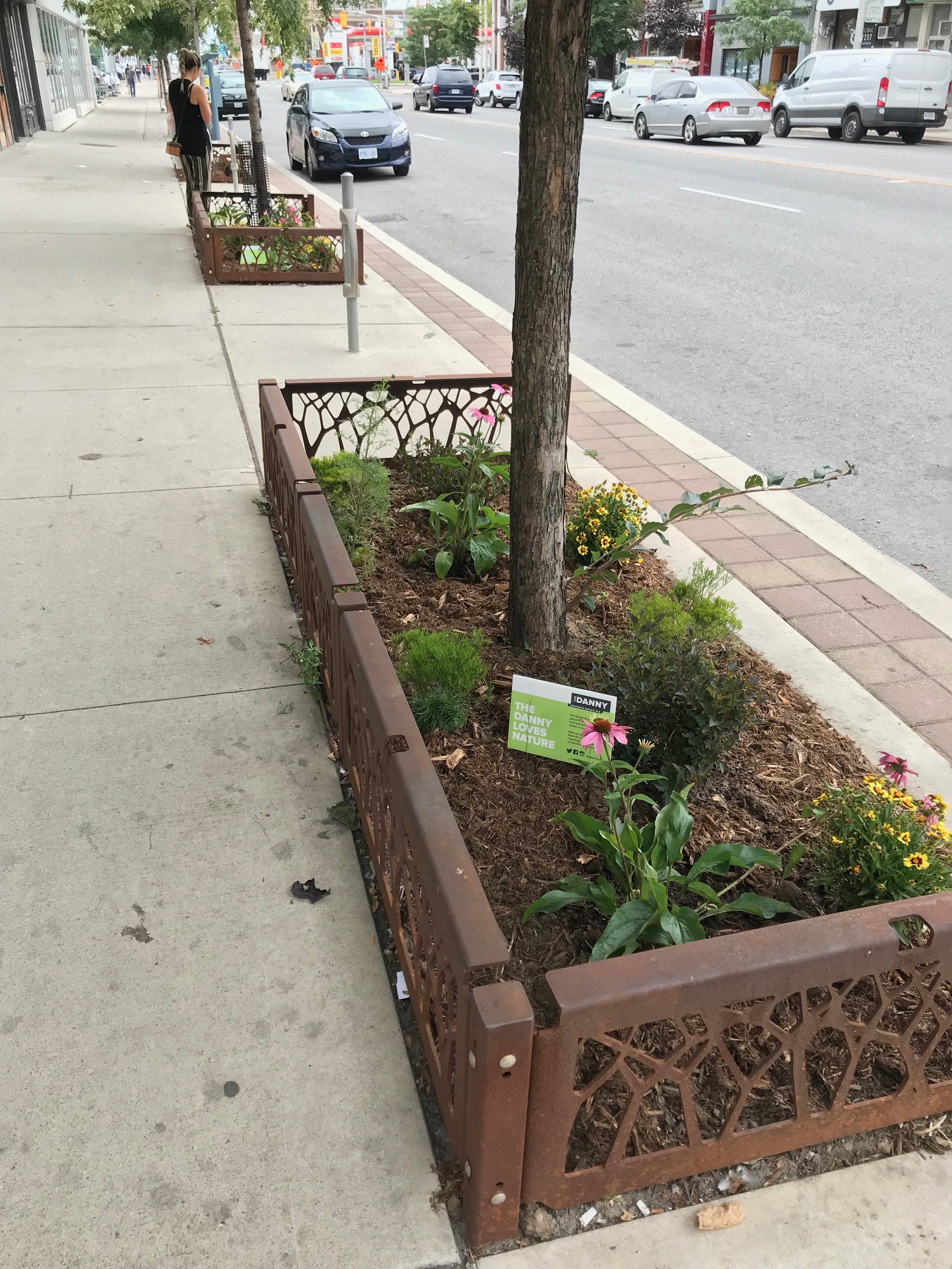

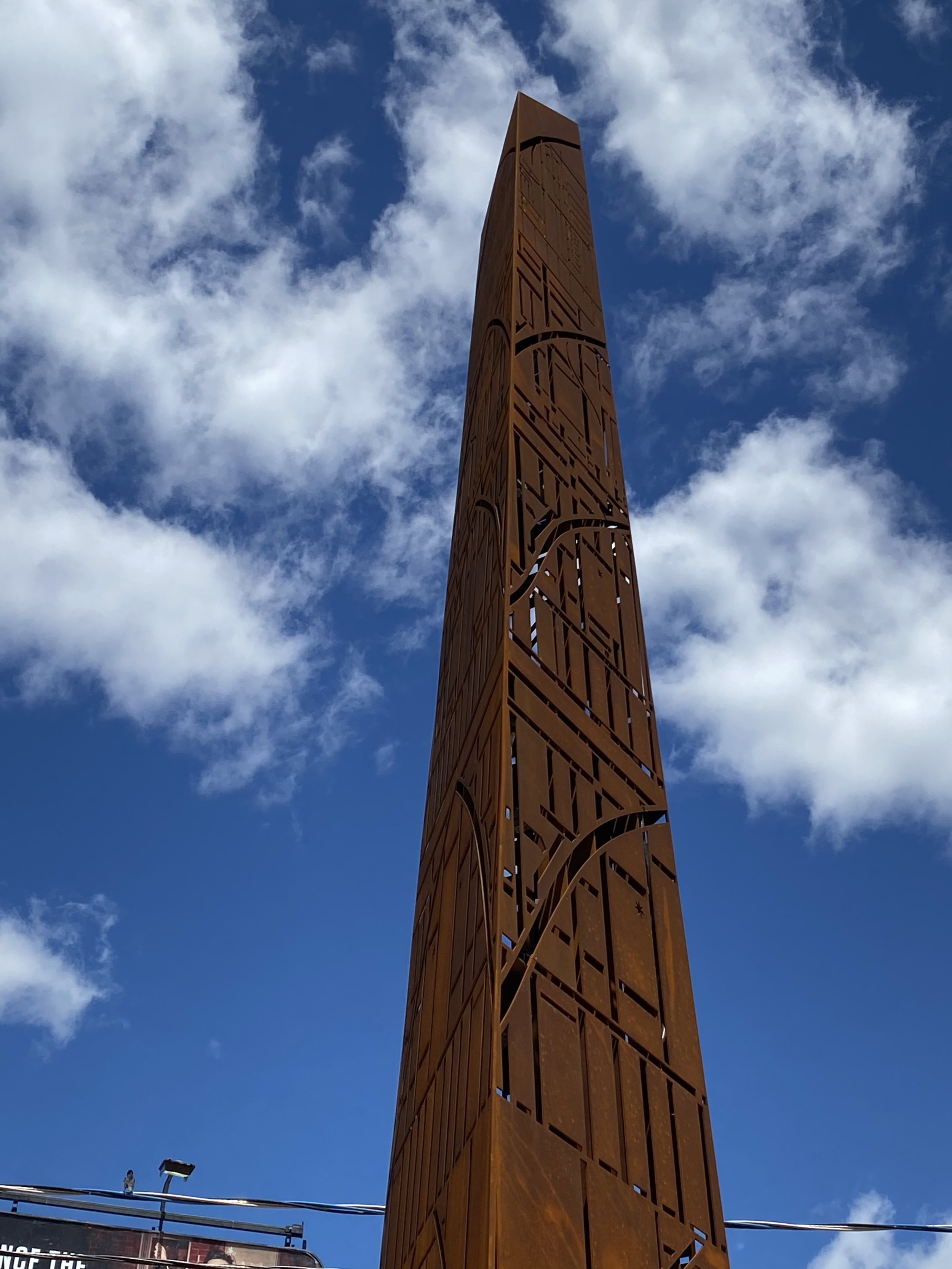

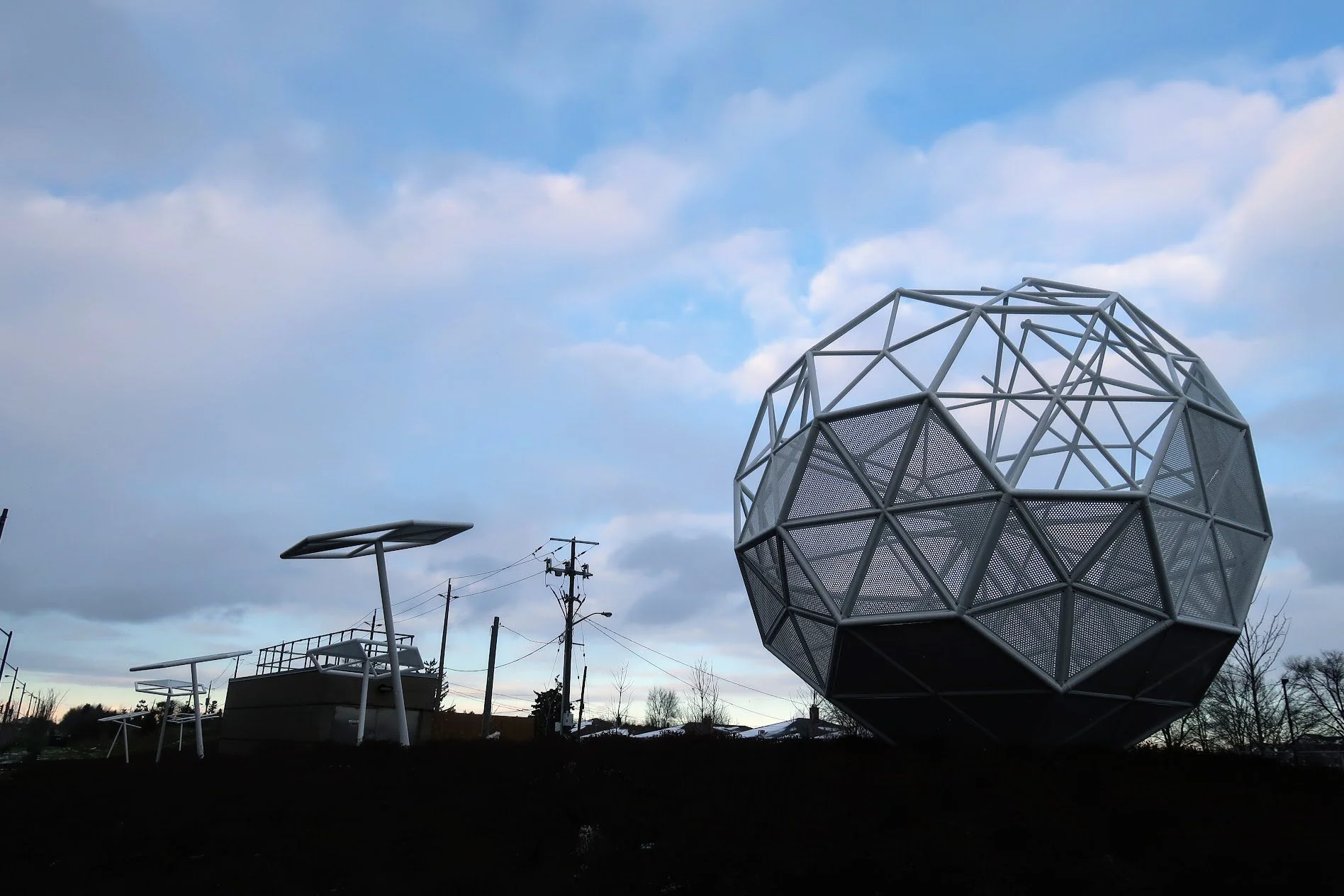
Sheila Boudreau
Sheila Boudreau is the Principal Landscape Architect + Planner at SpruceLab Inc., with over 30 years of experience following degrees in Landscape Architecture and Fine Art (University of Guelph), and a Master of Arts in Planning (University of Waterloo). She established SpruceLab to be collaborative and nature-based with a community focus, and to prioritize Indigenous voices and honour her Mi’kmaq ancestors in this work. She has had the honour of working with artists and industrial designers throughout her career on public art projects, as well as custom benches and bike ring designs for the City of Toronto.
She comes to this work as a designer with expertise from working in a mixed materials manufacturing plant in Guelph, Ontario for 5 years (part-time / summer jobs at the plant her step-father managed), learning about metals, plastics, fibreglass, finishes (galvanizing, anodizing, painting, sandblasting), and fabrication processes including grinding, spot-welding, CNC machining, laser-/water-jet cutting, and aluminum casting. Her love of art inspires her to co-design with artists to create meaningful site furnishing elements for public realm projects, originating with a vision to celebrate culture, honour the Land and Water, and grounded in the reality of knowing what is required to create the finished product.
Sheila co-designed the sculpture Nbi Ayaa Mshkiki “Water is Medicine”, and worked on the landscape designs required to support the installation of the art works shown above (clockwise from the top right): David Dennis (tree fence), Marianne Lovink and Scott Eunson (Weston BikePlant bike rack), Pierre Poussin (brick obelisk), Daniel Borins and Jennifer Marman (Dodeca); and Mark Langridge (Square One Mall pergola).
